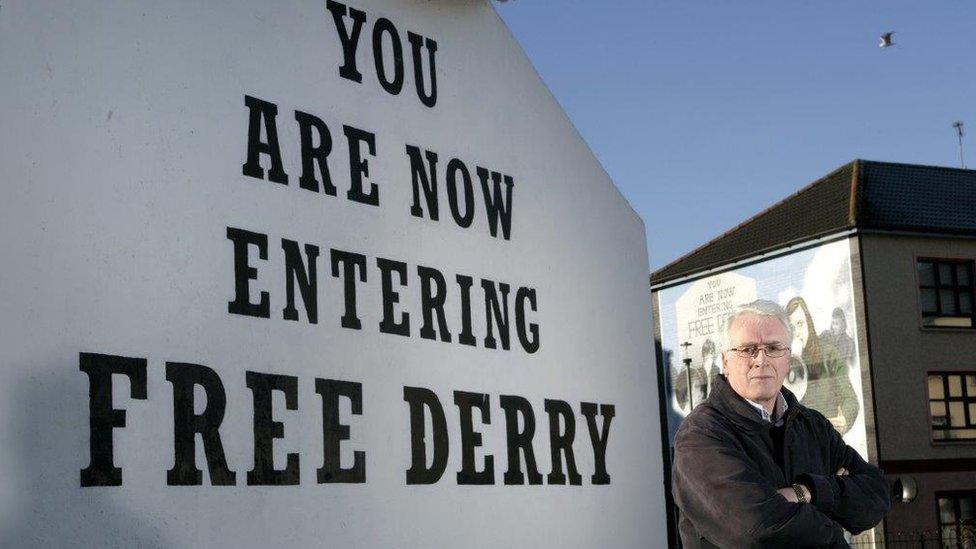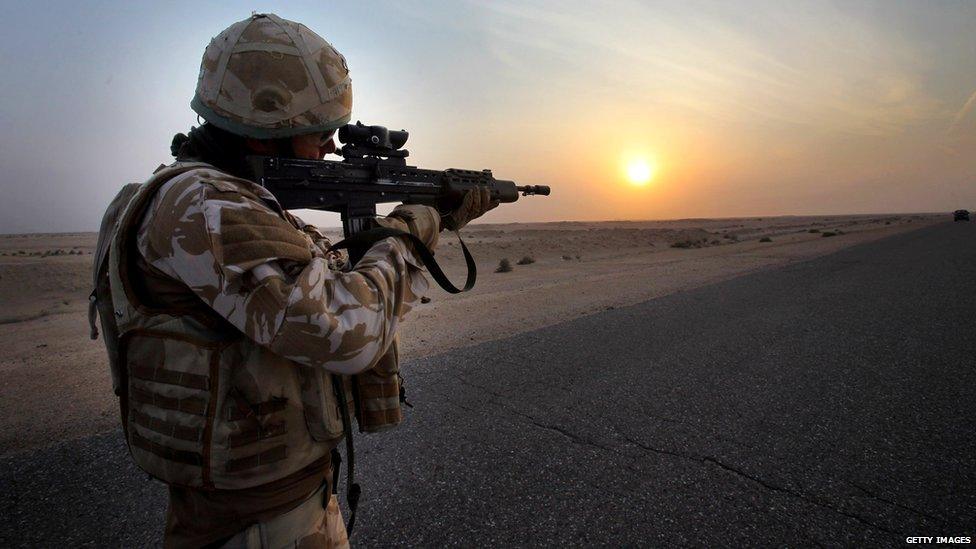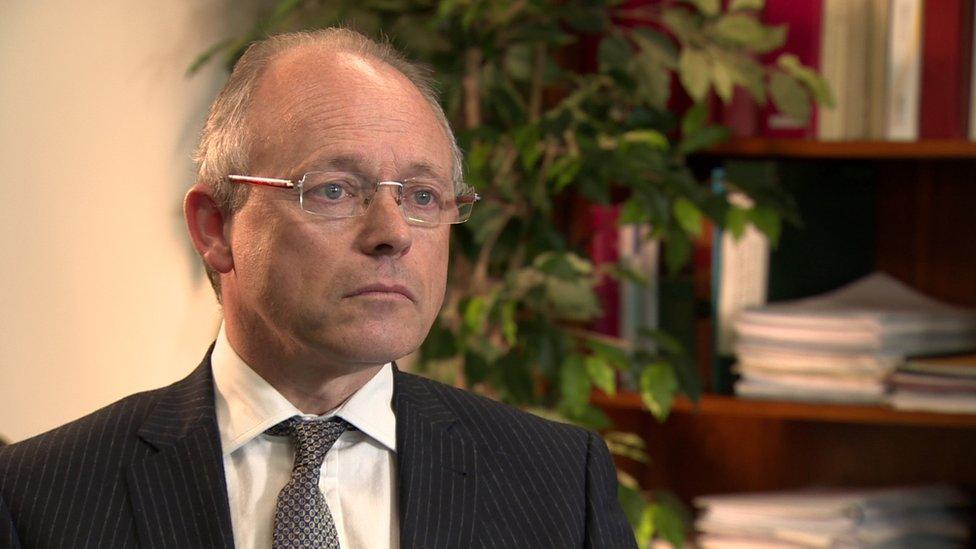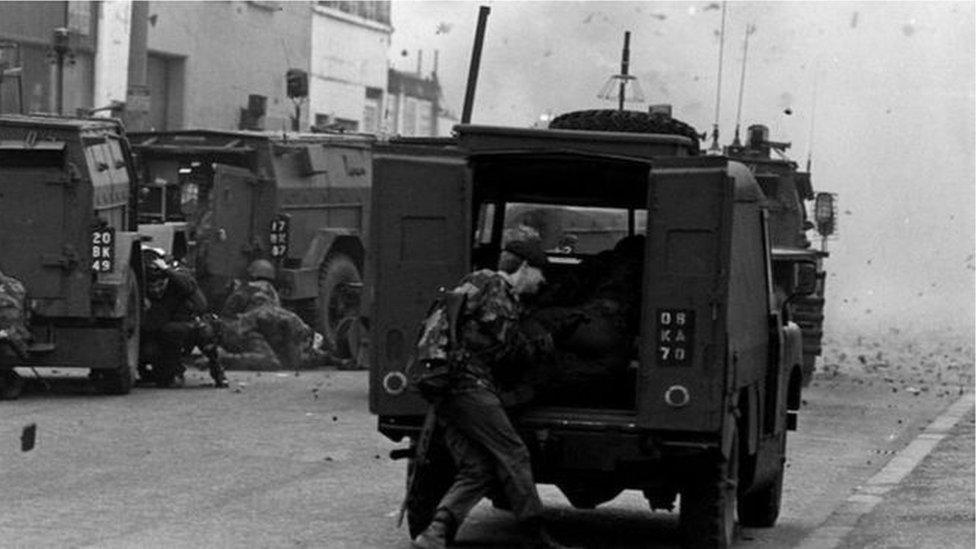Bloody Sunday families say march is 'pure provocation'
- Published

John Kelly's brother Michael was killed on Bloody Sunday
Relatives of Bloody Sunday victims have called a march by military veterans in Londonderry "an act of pure provocation".
John Kelly, whose brother Michael was killed in the 1972 atrocity, said the march was a "deliberate insult" to the people of Derry.
Veterans for Justice UK expect about 100 former soldiers to take part in a march through the city next month.
Organisers said it was to highlight "injustices against soldiers".
'False prosecutions'
Mr Kelly said the march by British Army veterans on 4 March "must not be allowed to happen".
"Clearly, this is an act of pure provocation and is totally insensitive to the nationalist population. It's a deliberate insult," he said.
"Its organisers should think carefully about the effect this could have on bereaved families here, families still reeling from the crimes of the past, not to mention the ordinary citizens of this city."
Thirteen people were shot dead on 30 January 1972 after troops opened fire on a civil rights march.
Speaking on behalf of the Bloody Sunday Trust, Minty Thompson said holding the march in Derry was a "deliberately provocative act".
"This city has clearly been chosen because it was the scene of one of the most horrific acts of state violence in our history, Bloody Sunday, and because soldiers who were involved in that event, who shot down innocent and unarmed people on our streets, are at long last being investigated for their actions," he said.

Anto Wickham said soldiers serving in Iraq were being treated unfairly
The Northern Ireland branch of the Veterans for Justice UK group was established in December 2015.
Anto Wickham, who is organising the Derry march, said their aims were to protect soldiers serving in Iraq and Afghanistan facing "false prosecutions".
"If soldiers break the law then they face the rigours of the law and rightly so, and it's the same as it should be for any other member of the community," he said.
"But where's the investigation into my colleagues and friends who were murdered? It just seems to be forgotten about."
'Really hurt'
The former Royal Irish Regiment soldier added the marches were planned in 2016 as part of a larger campaign to put pressure on the government.
Mr Wickham said he was "upset" by suggestions the march was planned to raise tensions in the city.
"I understand the families and the victims are still really hurt and they want prosecutions.
"If that's the case, and there is evidence, then you have to face the rigours of the law but that should also be the same with the IRA."
The prosecution of those involved in killings is a major stumbling block in efforts to deal with the legacy of Northern Ireland's Troubles.
Last month, the director of public prosecutions for Northern Ireland said critics who accused him of treating former soldiers unfairly had insulted him and his office.
Barra McGrory QC said he was mystified by claims he did not act impartially when he brought charges against a small number of ex-soldiers.
Meanwhile, lawyers representing former soldiers facing prosecution have said they are being 'unfairly treated'.
Clarification 9 April 2019: This article was amended to remove a reference to the death of John Johnston. This reflects the Bloody Sunday Inquiry's finding about Mr Johnston's death several months after he was wounded in Derry on 30 January 1972. The inquiry report states that his death was "not the result of any of the wounds he sustained on Bloody Sunday".
- Published26 January 2017

- Published25 January 2017
